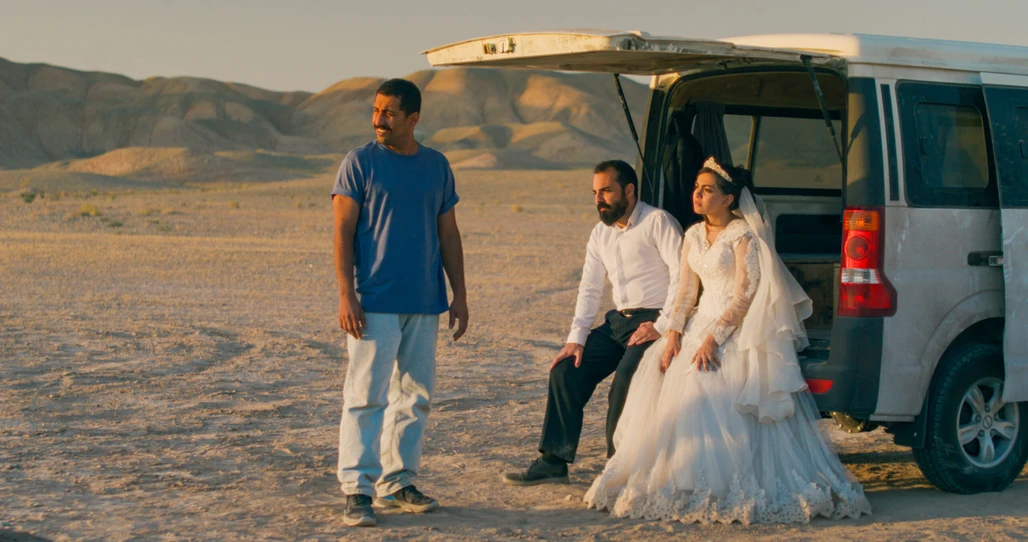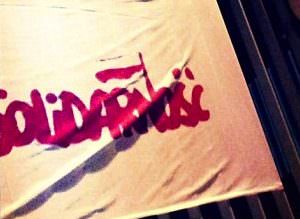Don’t Call It a Payback
Iran’s Palme d’Or winner “It Was Just an Accident” is a furious triumph about state violence and the limits of revenge. "It Was Just an Accident." (Courtesy of Jafar Panahi Productions)
"It Was Just an Accident." (Courtesy of Jafar Panahi Productions)
“It Was Just an Accident” will be released in 2025 by NEON in North America and Mubi internationally.
Jafar Panahi’s journey to the Cannes Film Festival’s top prize is a gloomy fairy tale that culminates in his latest, most incendiary work. A story of formerly incarcerated characters who kidnap the man they believe tortured them in captivity, “It Was Just an Accident” (or “Un Simple Accident”) is a riveting and amusing rebuke of the Iranian regime. It’s also a searing reflection of Panahi’s own experiences as a dissident artist.
The 64-year-old’s troubles date back to at least 1995, when Iran attempted to withdraw his debut film “The White Balloon” from consideration at the Academy Awards and barred him from traveling to the U.S. for its Sundance premiere. In 2010, after several interrogations and arrests, the Iranian neorealist was placed under house arrest and banned from traveling and filmmaking altogether. He persisted, covertly directing several autobiographical features and smuggling them out of the country, including 2022’s “No Bears,” about a director who skirts the authorities to produce a rural drama.
Later that year, he was arrested for challenging the imprisonment of fellow dissident director Mohammad Rasoulof (“The Seed of the Sacred Fig”) and remained in prison until after a hunger strike. “It Was Just an Accident” is Panahi’s first film since his release and the lifting of his ban on filmmaking. If it doesn’t play like the work of a director newly liberated from constraints, that is by design.
Rather than seeking permission, Panahi has once again made a movie outside the country’s legal and official framework, ensuring that it speaks truth to power with despondent urgency. There have already been political consequences for those willing to praise it.
“A searing reflection of Panahi’s own experiences as a dissident artist.”
The movie opens with a family of three — one-legged driver Eghbal (Ebrahim Azizi), his pregnant wife (Afssaneh Najmabadi) and their preschool-age daughter (Delmaz Najafi) — stranded by a darkened roadside after hitting a dog with their car. After helping them out of their bind, a timid birder named Vahid (Vahid Mobasseri) begins tailing the family, eventually stalking and abducting Eghbal the next day, forcing him into a van for reasons that aren’t initially clear. Despite this dramatic obfuscation, Panahi and cinematographer Amin Jafari’s observant camera tether us emotionally to the lives and wants of both characters in lengthy takes, before unraveling their psyches in surprising ways.
Vahid believes Eghbal to be the disabled Revolutionary Guard soldier who once tortured him in prison, based on the squeaking sound of Eghbal’s artificial leg. Eghbal convincingly denies any knowledge of Vahid’s torture, and the film delays clarifying the ambiguity, thrusting its characters into an increasingly absurd dilemma the longer they hold him prisoner. In order to be sure, Vahid seeks the help of former inmates who in turn point him in the direction of other detainees who might be able to confirm or deny Eghbal’s identity. The task is complicated by the fact that blindfolding political prisoners is a common practice. The movie’s main characters — including Eghbal, who Vahid blindfolds in turn — are left flailing in the dark, literally and metaphorically, resulting in a preposterous road adventure to collect bickering dissidents for a harebrained act of vengeance.
Along the way, Vahid is joined by hot-headed carpenter Hamid (Mohamad Ali Elyasmehr), cautious journalist-turned-wedding photographer Shiva (Mariam Afshari) and fragile bride-to-be Goli (Hadis Pakbaten). All were imprisoned for activism and tortured by a man they call “peg leg.” What follows is a furious comedy of errors, hilarious and stirring in its uneasy search for catharsis. Vahid’s crowded van becomes both a roving metaphor for directionless grief as well as a hot and dusty venue for intense debate over Eghbal’s identity and what should be done to him — Death? Torture? Something worse? — if the ragtag vigilantes can confirm his guilt.
During the characters’ heated arguments, the irony of the situation becomes clear: Like the regime that has long restricted their freedoms, they too have snatched a potentially innocent person off the street, blindfolded him and violently interrogated him in the hopes of being given answers they want to hear. Like a government that fears losing control, these combustible antiheroes are haunted by a loss of bodily autonomy — a trauma that seeps into their dialogue and actions, suddenly and unexpectedly.
The film is underscored by a broad and daring optimism.
Panahi neither lauds nor rejects his characters’ instincts for retribution. By tying their violence to that of their captors, he extends his sympathies to the human cogs in the government machine that are responsible for bringing harm to an untold number of dissenters. However, as the plot deepens, and the characters lean toward self-destruction in pursuit of revenge, what separates them from the fascist forces they protest is their fleeting glimmers of doubt. Their empathy for people, even monsters, is the frayed harness that prevents them from tipping over into the black hole of the very evil they so despise.
The film is underscored by an even broader and more daring optimism. While the actors in the foreground put on clinics of naturalistic performance, Panahi subtly creates an equally meaningful backdrop, painting an Iran in a state of social and political transition, as though freedom were waiting just over the horizon. The protagonists belong to neighborhoods of varied religious economic backgrounds, and as Vahid’s van drives between them, the camera captures the larger tapestry of Tehran, including women fighting back against men harassing them for not wearing their hijabs — one of the key catalysts of the country’s Zan, Zendegi, Azadi movement (Woman, Life, Freedom).
But optimism is fragile. Although Panahi’s characters escaped their captors, the specter of violence still looms over their society and resides deep in their bones. “It Was Just an Accident” captures the difficult process of looking for places to direct one’s anger as it festers — even when doing so might seem futile. Ultimately, it paints this sense of defeat as a necessary aspect of living under authoritarianism, and eventually, outliving it.
Dig, Root, GrowThis year, we’re all on shaky ground, and the need for independent journalism has never been greater. A new administration is openly attacking free press — and the stakes couldn’t be higher.
Your support is more than a donation. It helps us dig deeper into hidden truths, root out corruption and misinformation, and grow an informed, resilient community.
Independent journalism like Truthdig doesn't just report the news — it helps cultivate a better future.
Your tax-deductible gift powers fearless reporting and uncompromising analysis. Together, we can protect democracy and expose the stories that must be told.
Dig. Root. Grow. Cultivate a better future.
Donate today.






You need to be a supporter to comment.
There are currently no responses to this article.
Be the first to respond.